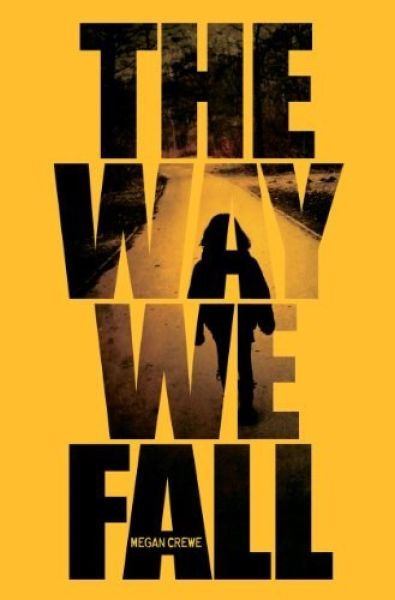“Island” is Old English for “Death Trap”
The Way We Fall (The Fallen World, volume 1)
By Megan Crewe

1 Aug, 2015
0 comments
Megan Crewe’s 2012 novel The Way We Fall takes us to a small Canadian island, the island that narrator Kaelyn calls home. Sixteen year old Kaelyn’s life hasn’t been all that smooth of late. Her father didn’t react particularly well to the revelation that his son Drew is gay; in fact, he moved the whole family back to the island, away from Toronto, to distance Drew from his boyfriend. Kaelyn is also saddened by a jealousy-fueled falling-out with her best friend Leo.
Two years after the quarrel, Kaelyn belatedly regrets the rupture. Her sudden epiphany about how much she misses Leo comes too late; he has left for school on the mainland. In lieu of conversations with him, Kaelyn begins addressing each of her journal entries to Leo. It’s good practice; after all, what are the odds Leo will never return to the island? Who could imagine that life as Kaelyn knows it is about to be irrevocably transformed?
Did I mention The Way We Fall is volume one in the Fallen World trilogy?
At first, nobody suspects that the new virus sweeping the island is anything more serious than a new flu. It quickly becomes obvious the disease has unpleasant neurological effects and, more worryingly, a mortality rate close to 100%. Kaelyn’s journal documents the progress from alarm to panic, from a hastily declared emergency to a world where what should have been a momentary calamity has become the new normal.
From the point of view of the outside health authorities, there is one upside to the epidemic: it’s on an island and can be contained. From the point of view of the islanders, the quarantine, the isolation, and the increasingly violent measures used by the mainlanders make an awful situation that much worse.
All too soon, the quarantine measures lapse. The sudden absence of watchful soldiers and the ominous silence from the mainland hint that the quarantine came too late — that, as extreme as the measures were, they were also ineffective
All of which leaves the dwindling population of islanders on their own, to survive the disease and face the slow collapse of their once-comfortable society.
~oOo~
I have often complained about the implausible lethality of fictional plagues, but I must reserve judgment here. Until I read the sequel and discover just how hard the mainland was hit, I am going to cut author Crewe some slack here. An island, or at least this particular island, isn’t self-sufficient. Its medical resources would be limited and dependent on re-supply from the mainland. Also we don’t really have much idea how inbred the island population might be. If there’s too much genetic similarity, the community may be more vulnerable than other populations.
Of course, the complete collapse in communications does strongly suggest that the rest of the world was seriously hit. But until I look at the next book there is no way to tell if the author has imagined an unlikely 99% lethal plague … or just something with the same sort of death rates seen during pandemics like the Black Death.
There are a lot of pandemic and post-pandemic novels out there, novels like The Last Man, The Stand, I am Legend, Some Will Not Die, Pluribus, The Last Canadian, and of course Station Eleven. Any author who decides to write a book about a deadly pandemic is going to have to do something to distinguish their book from all the other fictional treatments.
Crewe sets her story on a small island, which means that anyone without a boat (and all the available boats are soon hulled by the mainlanders) cannot try to outrun the disease.They can only try to outlast it.
So, no stories of panicked flight. Crewe also goes against the tropes by writing a protagonist who is a comparatively powerless sixteen year old. About all Kaelyn can do is offer palliative care. As much as she might hope to be the plucky teen hero who spots the Clue to It All that the Adults Overlooked, that’s not the sort of book she’s in — although her author does dangle a tantalizing and cruelly false hint that this might be such a book [1].
This world, of ineffectuality in the face of overwhelming problems, is of course the world in which most teens are stuck [2]. Perhaps their problems are less catastrophic; perhaps the local landfills are not filled with the bodies of their loved ones. Still, a younger reader would find a lot in this novel that resonates.
The Way We Fall can be purchased here.
1: This reminds me of Emmi Itäranta’s Memory of Water, another dystopic tale with a powerless heroine.
2: If there are any teenagers reading this, let me assure you that adult lives are exactly the carefree carnival of self-indulgent hedonism you imagine and from which you are barred. Also, once you are an adult, your bodies stop springing weird and unpleasant surprises on you.
